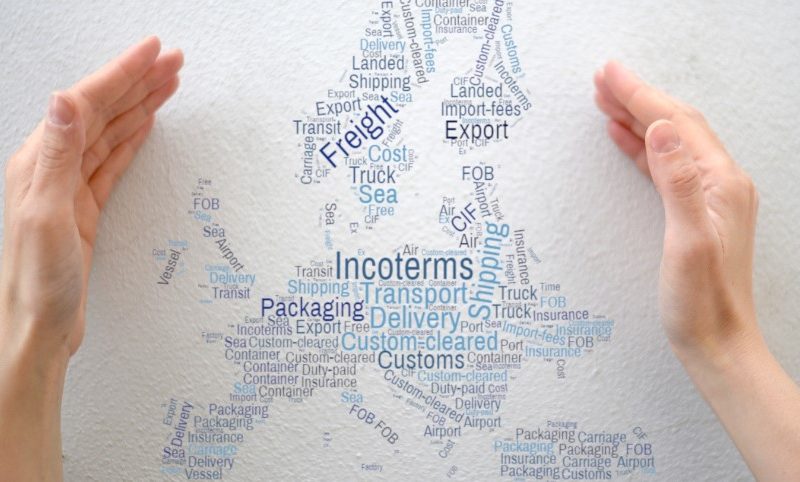Welcome to our comprehensive guide on Ex Works Incoterms (EXW)! Understanding the various terms and responsibilities is crucial for a smooth and successful transaction if you’re involved in international trade. EXW, or Ex Works, is one of the most widely used incoterms defining buyer and seller obligations and risks.
In this article, we’ll take you through everything you need to know about Ex Works – from its definition and advantages to using it in international trade. Whether you’re a seasoned importer/exporter or just starting in the global market, this complete guide will provide valuable insights into how EXW works and why it’s an important term to be familiar with.
So, let’s dive right in!
What is Ex Works Incoterms (EXW)

Ex Works (EXW) is an incoterm that places the highest responsibility on the buyer. It means the seller fulfils their obligation when they make the goods available at their premises. The buyer handles all transportation, customs clearance, and associated costs. This term is commonly used for domestic transactions and can be advantageous in certain situations.
Responsibilities and Risk under Ex Works

Under the Ex Works (EXW) Incoterm, the seller’s responsibilities are limited to making the goods available at their premises. The buyer assumes all risks and costs associated with transportation, including loading, export clearance, and delivery to the final destination. It is crucial for both parties to clearly understand their obligations and liabilities to avoid any potential disputes or misunderstandings. The buyer can make informed decisions regarding shipping arrangements and insurance coverage by clarifying these responsibilities upfront.
Advantages of Ex Works

1. Cost-saving: With Ex Works, the seller is only responsible for making the goods available at their premises. This means lower transportation costs for buyers as they can choose their shipping method.
2. Control over logistics: Buyers have full control over the entire logistics process, from selecting carriers to arranging insurance. This allows them to ensure timely delivery and monitor the movement of their goods.
3. Flexibility in packaging: Since buyers handle transportation under Ex Works, they can choose suitable packaging options that meet their specific requirements.
4. Reduced risk of damage or loss: By taking charge of transportation, buyers can minimize the risk of damage or loss during transit as they are directly responsible for handling and securing the goods.
5. Better price negotiation power: Under Ex Works, buyers have greater bargaining power when negotiating prices with suppliers since they are not burdened by additional shipping costs or fees associated with other incoterms.
6. Easy customization and personalization: Buyers can easily customize or personalize products before shipment without any restrictions imposed by sellers, allowing them to cater to specific customer demands effectively.
Disadvantages of Ex Works

1.Increased responsibility: As the seller, you bear the burden of ensuring that the goods are ready for collection and properly packed. This puts additional pressure on your resources and time.
2. Limited control over transportation: Since the buyer is responsible for arranging transportation, you need more say in choosing carriers or controlling delivery schedules. This lack of control can lead to delays and potential disputes.
3. Potential financial risks: With Ex Works, you may be liable for any damage or loss during loading or transit until the buyer takes possession. This can result in financial losses if proper insurance coverage is not in place.
4. Complex documentation requirements: Ex Works involves a range of export documents such as commercial invoices, packing lists, and customs declarations. Ensuring all paperwork is accurate and complete can be daunting, especially for inexperienced exporters.
5. Communication challenges: Coordinating with multiple parties involved in international trade can be challenging under ex-work terms. Miscommunication or logistical issues may arise due to language barriers or different interpretations of responsibilities.
Using Ex Works in International Trade

Ex Works (EXW) is a widely used Incoterm in international trade credit, offering flexibility and control to both buyers and sellers. It allows the seller to make the goods available at their premises while the buyer takes care of transportation and all associated costs. This option can be particularly beneficial for experienced importers who have established reliable logistics networks and want to minimize costs by managing their freight arrangements. Additionally, EXW is often chosen when dealing with high-value or sensitive goods, as it provides complete control over handling and packaging.
Ex Works and Routed Export Transactions

When using the Ex Works incoterm, it’s important to understand how it applies to routed export transactions. In these cases, the responsibility for arranging and paying for transportation shifts from the seller to the buyer. The buyer is responsible for finding a freight forwarder or carrier to handle shipping arrangements. Agreeing on who will be responsible for export compliance documentation and filing with customs authorities is crucial.
Transportation Options under Ex Works

Buyer is responsible for transportation under Ex Works, including loading goods, completing export formalities, and delivering to the final destination. Buyer controls carrier and transportation mode, allowing for cost-effective and efficient options. Careful planning is important for smooth international trade.
Key Differences between Ex Works and FOB

When it comes to international trade, understanding the differences between Ex Works (EXW) and Free on Board (FOB) is crucial. While both are commonly used Incoterms, they have distinct characteristics.
Under EXW, the seller’s responsibility ends once the goods are available at their premises. In contrast, with FOB, the seller is responsible for delivering the goods to a specified port or vessel.
The key difference lies in who assumes risk and cost during transport. With EXW, the buyer takes on all risks and costs after collection from the seller’s premises. Whereas with FOB, it is the seller’s responsibility until delivery to a specific location.
These distinctions impact insurance coverage and transportation arrangements. Understanding these variations is essential before engaging in international trade transactions using EXW or FOB terms.
Tips and Tricks for EXW Freight

EXW freight can be complex, but you can navigate it successfully with the right tips and tricks. Here are some helpful pointers to make your EXW shipments smoother: clarify responsibilities with your supplier, ensure proper packaging and labelling of goods, choose a reliable freight forwarder or carrier, understand customs procedures and documentation requirements, and consider insurance coverage for added protection. By following these tips, you’ll be well-prepared to handle EXW freight effectively.
EXW Price and Freight Tips

When using Ex Works in international trade, it’s important to consider the price and freight aspects. Here are a few tips to keep in mind: negotiate the best price with your supplier, factor in additional costs such as packaging and documentation fees, choose a reliable freight forwarder for transportation, ensure proper insurance coverage for your goods, and stay updated on any changes in shipping regulations or customs requirements. These tips will help you successfully navigate the complexities of EXW pricing and freight logistics.
Understanding the Difference between FCA and EXW

Regarding international trade, it’s important to understand the differences between various Incoterms. FCA (Free Carrier) and EXW (Ex Works) are commonly used. While both involve the seller making goods available to the buyer at a specified location, key distinctions exist. In an FCA agreement, the seller is responsible for delivering goods to a carrier nominated by the buyer. In contrast, with EXW, the buyer is responsible for arranging transportation from the seller’s premises. This difference affects who assumes responsibility and risk during transit. Understanding these nuances can help ensure smooth transactions in global commerce.
Conclusion
EXW is a popular Incoterm used in international trade that offers both advantages and disadvantages for buyers and sellers. It places the majority of responsibility and risk on the buyer, making it important to thoroughly understand the implications before entering into an EXW agreement.
One of the main advantages of using Ex Works is that it provides complete control over the logistics process for both parties. Sellers can avoid additional costs associated with transportation and loading, while buyers can choose their preferred shipping method and carrier. This can lead to potential cost savings and increased efficiency.
However, there are also some disadvantages to consider. Buyers bear the burden of coordinating all aspects of transportation, including insurance, customs clearance, and documentation. This requires expertise in international logistics, which may need to be more feasible and cost-effective for small businesses or inexperienced traders.
When using Ex Works in international trade, it’s crucial to understand its application in routed export transactions. In these cases, the seller assumes responsibility for filing export declarations with local authorities on behalf of the buyer. This can simplify processes for buyers unfamiliar with local regulations but requires clear communication between both parties to ensure compliance.
It’s important to note that there are key differences between Ex Works (EXW) and Free On Board (FOB). While both terms relate to delivery at a specific location, FOB includes additional responsibilities for sellers relating to loading goods onto a vessel at a port of shipment.









